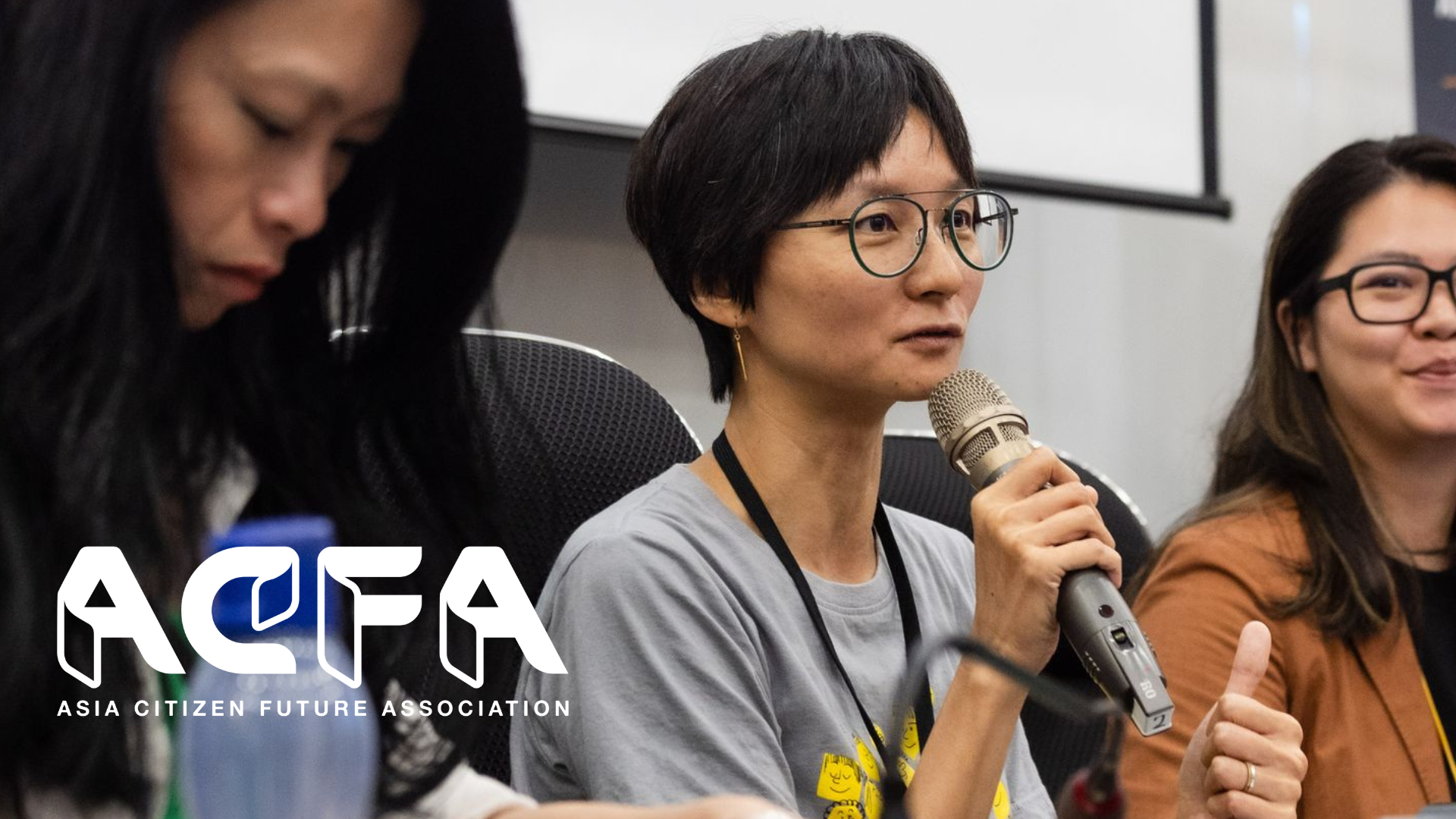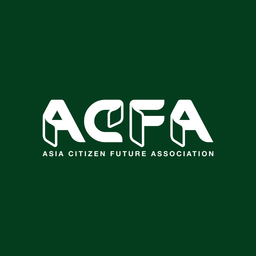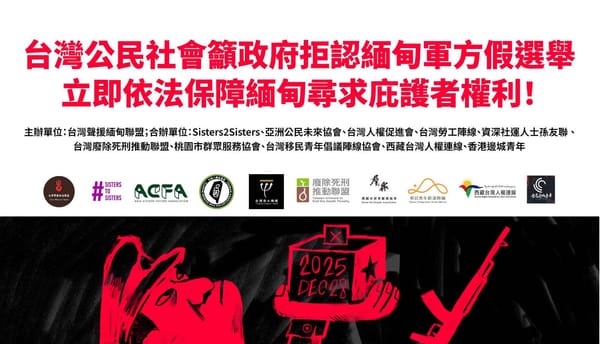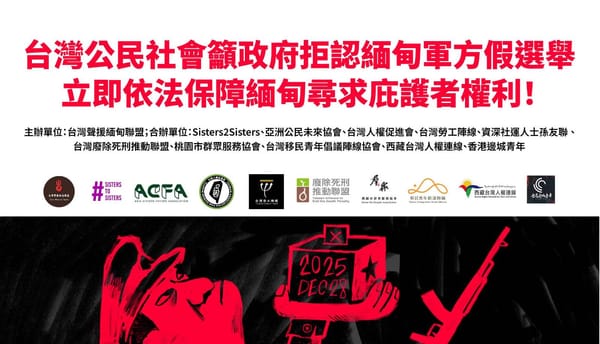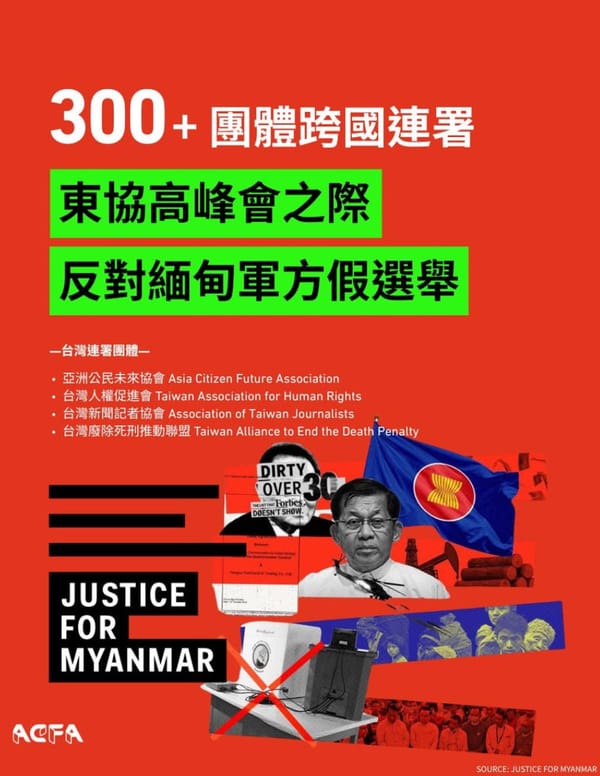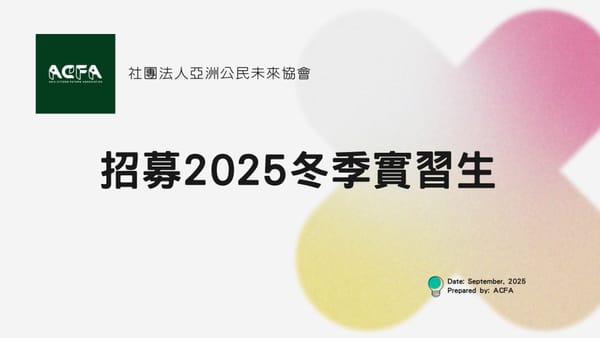An introduction of the right to the freedom of association in Malaysia by youth human rights defender Wong
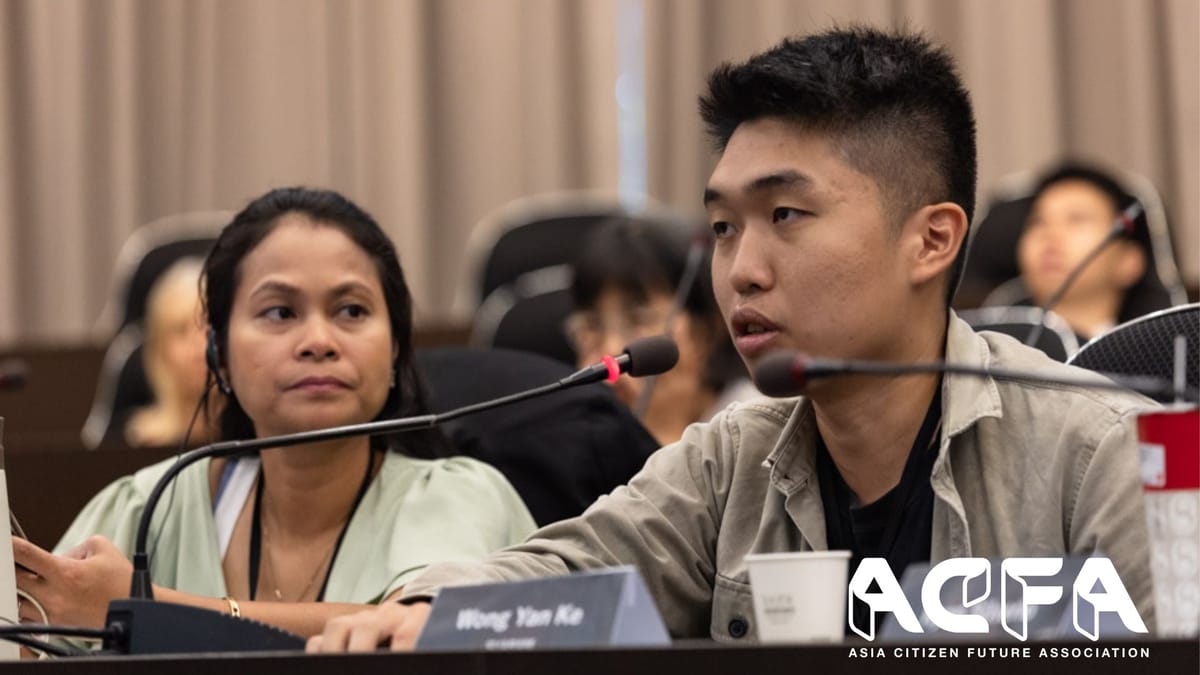
Note taking: Doris Yang / Editing: Leah Lin
ACFA (Asia Citizen Future Association) is honor to invite Wong Yan Ke, the program and campaign coordinator at Suara Rakyat Malaysia (SUARAM), to talk about the current situation of freedom of association and press freedom in Malaysia for us to understand the current situation and trends of the shrinking of civil space in the country. This is the record of the sharing of Wong Yan Ke on ACFA's report launch forum on 22 August,"Exploring Taiwan's Roles Amid The Crisis of Closing Civic Space in the Southeast Asia" during the ACFA 2023 Taiwan and Southeast Asia Civil Society Week.
About the speaker
Wong Yan Ke is a program and campaign coordinator at Suara Rakyat Malaysia (SUARAM), handling cases related to police misconduct and detentions without trial. He is also the coordinator of CSO Platform for Reform's Police Accountability sub-cluster, and is coordinating campaigns for freedom of expression, freedom of assembly/association and ant-itorture and elimination of custodial deaths. Besides monitoring cases and initiating campaigns, he is currently working on a socioeconomic research on detention without trials' detainees and their family members. Wong Yan Ke is also a participants in ACFA's "Exploring Taiwan's Roles Amid The Crises of Closing Civic Space in the Southeast Asia" research and one of the panelists on ACFA's "Taiwan & Southeast Asia Civil Society Week" report launch forum.
There are four groups of stakeholders who are most directly influenced by the limitation of freedom of association in Malaysia, that are: (1) NGOs (2) Political Parties (3) Trade Unions (4) Students Organizations.
(1) NGOs
The current Societies Act of Malaysia regulates that a society can be formed with seven or more persons. Looking at the minimum number of initiators to form a society or association, the requirement of 7 or more persons to form a society in Malaysia is much more workable than the requirement of 30 or more initiators for forming an association regulated by the Civil Association Act in Taiwan. However, the biggest challenge for the freedom of association in Malaysia is the excessive executive power of the authority; for example, the government authority has the power to decide whether to approve the application for registration, or whether to dissolve societies.
Furthermore, the Registrar of Society (ROS) under the Ministry of Home Affairs, which is the authority to approve applications for registration of societies, normally does not approve the application submitted by organizations working matters related to human rights and politics. There were only few organizations of whom the board members are influential enough (such as those who used to be government officials, judges, or foreign ministers) could be approved for registrations.
In response to such difficulties, many human rights organizations chose to register through the Companies Act as companies. For example, Amnesty International Malaysia was registered as a company after being rejected to be registered as a society by the ROS.
The fact that many CSOs have no choice but to be registered as companies has brought them a lot of challenges. For instance, many donors refuse to provide grants or fundings for organizations that are registered as companies. Furthermore, organizations that are registered as companies have to bear the burden to pay taxes.
Besides from the challenges in registration, CSOs who receive international fundings are subjected to stigmatizations through the accusations of being the representatives of Western countries or the Jewish agencies. The difficulties mentioned above make it challenging for people in Malaysia to exercise their freedom of association.
(2) Political Parties
In Malaysia, registrations of political parties that are deemed as opposition parties or causing potential threats to the ruling parties are rarely approved. For example, the Malaysian United Democratic Alliance (MUDA), which was formed by a multi-racial group of youths, applied to the ROS to be registered as a political party in 2020. The application was rejected by the ROS in January 2021 through an email without explaining the reasons. The MUDA later sought a court order at the High Court to reverse the decision made by the ROS. The court ruled that MUDA won the case, and MUDA was finally registered in December 2021.
This case shows that the Malaysian authority was reluctant to accept young and progressive political voices; and when people are deprived the right to form a political party, they could only seek judicial review as a possible path to assert their rights.
(3) Trade Unions
In Malaysia, unions could only be formed with the approval of the employers by each company. Besides, all matters related to unions are supervised and controlled by the Director General of Trade Unions and the Ministry of Human Resources. Therefore, union-related activities are put under the control of the executive power.
(4) Students Organizations
Due to the uprising of left-wing movements, a lot of university students in Malaysia actively participated in political movements in the 1970s and was once considered intimidating the legitimacy of the ruling party. In response, the ruling party enacted the Universities and University Colleges Act to control students’ activities. With the Universities and University Colleges Act, students are prohibited from standing in solidarity with peasants or marginal groups' movements. They are also prohibited from participating in politics and forming their own students’ associations. Instead, students can only express their voices through the Students' Representative Councils, which are under the control of the Vice-Chancellors of the universities. The Vice-Chancellors have the power to decide whether to approve or suspend students' activities, and whether to expel the students or suspend students' licenses for organizations. Once students' activities or licenses are suspended, they could only seek for judicial reviews to reverse the universities' decisions.
Wong Yan Ke has been an activist since his student days in the Universiti Malaya. On October 9 2023, the court found him guilty under Section 504 of the Penal Code (which refers to intentionally insulting a person and provoking a breach of peace) for a solo protest during his graduation ceremony in 2019.
During his graduation ceremony, Wong raised a placard to demand the vice-chancellor to resign for his racism remarks in the Malay Dignity Congress when he was receiving his bachelor's degree on the stage.
The university lodged a police report accusing Wong of disrespecting the ceremony and forbidding another student activist to participate in the convocation ceremony in order to prevent the protest from happening again.
The university's staff refused to give Wong his diplomat scroll and academic transcript with the excuse that Wong's scroll was 'dirty'. The activist was only allowed to collect those documents a few days after the incident.
Wong was charged under Section 504 of the Penal Code in February 2020; he visited the court for around 70 times from 2020 to 2023. On October 9, 2023, Wong was found guilty by the court with the fine of MR5000, the court requested him to serve 3 months in jail if he fails to pay the fine.
Wong's activism against racism should be encouraged; however, the authorities' prosecution against youth/student activists is a harmful act against the freedom of speech and an act of silencing student activism.
